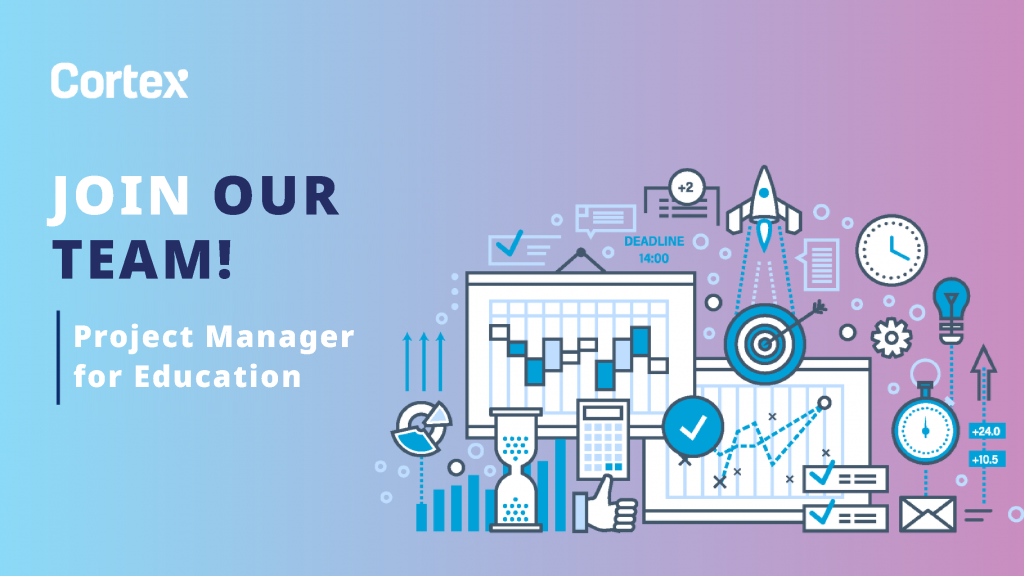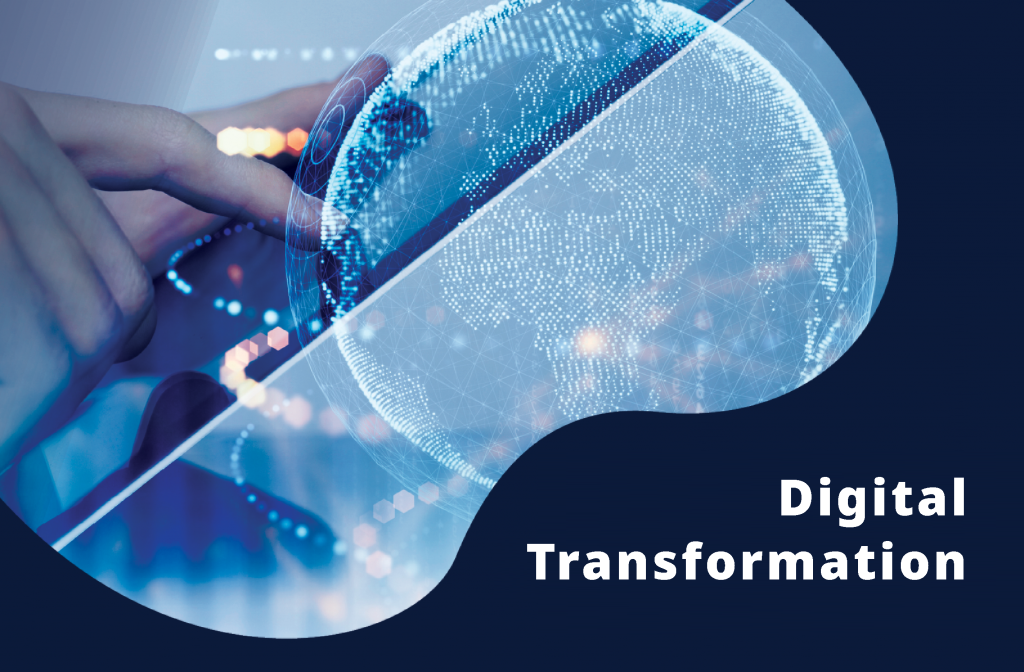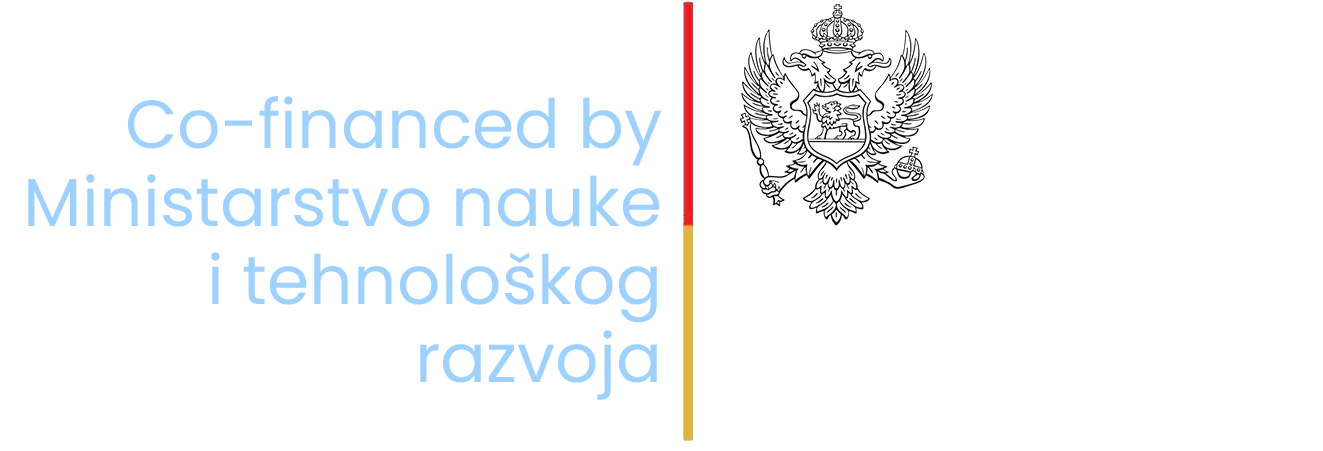Tender for support of STARTUP ICT business has been announced

That the signed Memorandum of Cooperation between ICT Cortex and the Capital City is not just a letter on paper is best demonstrated by the implementation of the planned activities. The first among them is the continuation of support for the development of the startup scene, which this year will also guarantee participation in the largest technology conference in the world – the Web Summit, which is organized in Lisbon from November 1-4. The Secretariat for Support to the Business Community of the Capital City has announced a Contest for STARTUP ICT business support, to which all legal and natural persons can apply and apply for the ALPHA or BETA program. The ALPHA program can be applied for by individuals or legal entities that were founded in the last 5 years with residence or headquarters in the territory of the Capital City and who want to start or develop their business ideas in the Capital City. A maximum of 3 participants (individuals or legal entities) who are among the winners of the previous Competition for the support of start-up businesses in 2021 can receive support for the BETA program. According to the Decision on the Budget of the Capital City of Podgorica for 2022, funds for EUR 40,000.00 are planned for these purposes, to support innovative products and services that are at least on the third level of the technological readiness scale (TRL3 – technology readiness level) in the areas of fintech; IoT (Internet of things); game development; health tech; smart technologies (cities, buildings, etc.); digital transformation (ERP systems, e-business, financial technologies, etc.); green ICT (reduction of emissions, energy saving, etc.); machine learning and artificial intelligence. The amount of funds that can be granted to one person under this competition is up to EUR 4,000.00 and can only be used for participation in the Web Summit 2022, whose topics are focused on IT and Internet technology and other types of new technologies. In addition to fulfilling the conditions of the Contest, the participants of the contest must also meet the quality standards prescribed by the Web Summit. The application form for the competition can be downloaded from the link, and the deadline for submitting applications is July 22. As a reminder, thanks to the initiative of the ICT Cortex cluster and the support of the Capital City, last year Montenegro had an unprecedentedly large delegation at the Web Summit, where as many as seven Podgorica start-ups were presented.
Job opportunity: Apply for the open position of PM for education!

The ICT Cortex cluster was founded with the idea of creating new business opportunities and contributing to the digital transformation of Montenegro through synergistic action, cooperation with our member companies, and presenting our country as an important destination for IT investments. Our executive office communicates daily with members of 35 member companies, as well as with representatives of public institutions, to create new values in the fields of technology, internationalization, talent development, and innovation. That is why we are always looking for great people who can bring new energy to our team, making us even better and more efficient! Who are we looking for? Project manager for education programs and Cortex Academy! Required qualifications and experience: College education (minimum Bachelor) Good knowledge of the English language Minimum of three years of work experience What do we expect from you? Experience and expertise in leadership, project management Effective planning and organization Willingness to take initiative Adaptability to challenging circumstances and risks Developed negotiation and communication skills Responsible, detailed, and dedicated attitude toward work Ability to effectively solve problems and make decisions Ability to prioritize Enthusiasm and creativity Team spirit, directness, and openness Stress tolerance and coping well under pressure Knowledge of project management software is desirable, but not necessary Knowledge of the innovation ecosystem and digital transformation process in Montenegro is desirable, but not necessary. What will your job be? Planning and implementation of project activities Monitoring and control of project activities Communication with all partners (schools, professors, companies, representatives of the public and private sectors) and project users (pupils, students, citizens), field visits PR activities and participation in panels and conferences Formation of the budget and its monitoring and control Planning and scheduling project deadlines Control and supervision of quality and procurement process Risk management and project control to reduce potential negative events Constant monitoring and reporting of project progress to all stakeholders, especially management Monitoring activities on the critical path to avoid project delays Taking corrective and preventive actions to get the project back on track Project quality assurance Responsibility for the successful implementation of the project Project evaluation and assessment of results Searching for donors and securing additional funds for projects We offer you: The opportunity to change society for the better, set standards and trends in the educational and academic sector of Montenegro An opportunity to meet all key stakeholders from the field of education, innovation, and IT sector in Montenegro, the region, and Europe This an exceptional opportunity to be the source of information, knowledge, contacts, and world trends The chance to constantly grow, develop and get out of your comfort zone Access to all courses and pieces of training by the most eminent local and global experts/organizations Daily contact and the opportunity to learn from professionals who have decades of experience in business, marketing, strategic planning, education, project management, IT An innovative work environment that includes the most successful Montenegrin IT companies and the most important partners of the innovation ecosystem The opportunity to visit the best technology festivals and the most developed innovative organizations in the world The opportunity to present your knowledge, experience, and results at various conferences and in public performances Financial conditions that are very stimulating for Montenegrin conditions Participation in the housing security program allows you to save at least 30% of the investment for the apartment Working on the latest equipment (MacBook, iPad, iPhone) A dynamic, dedicated, and innovative team – our employees say that one month of work at ICT Cortex is like 5 months of work elsewhere At Cortex, we do not waste paper, but use numerous modern tools for functioning every day, among others: Slack, Google Meet, JIRA, Confluence, Google Sheets/Doc/Forms. Use the opportunity to become part of the team and contribute innovative ideas to the development of the ICT Cortex cluster, but also the wider community! Send CV to contact@ictcortex.me Deadline for applications 01.07.2022. We are waiting for you!
Digital transformation – road toward modern society

Digital transformation is more important today than ever, both for the modernization of the public sector and for the standardization of the private sector, which must follow global trends. It is important to always keep in mind that digital transformation, as complicated as it sounds, is not quantum physics but a vital need of all participants in society in order to improve both the quality of business and the quality of life of citizens. Digital globalization, which is a consequence of the continuous development of information technologies, affects the reorganization of society and the global economy, the transformation and emergence of new professions, and the creation of a faster and more efficient system. For this reason, digital transformation must be continuous and imperative. It is obvious that a lot has been done in Montenegro to establish a framework for electronic business (legal, strategic, and institutional), and to implement key e-Government projects (electronic fiscalization, eID…), but our system still does not reflect this and the question arises – why this dysfunctionality? The process of digital transformation must be accompanied by the building of digital skills. There is a large digital gap both among the younger population and among the entire population when it comes to the use of ICT technologies, therefore it is necessary to start from education and introduce the learning of ICT and digital skills within all levels of the education system, in order to have staff, not only with the mastery of digital skills but ready for a job market that is crying out for individuals of this profile. According to the compass presented by the European Union through the vision and path of digital transformation until 2030, four key points have been recognized – the development of skills, the existence of safe and sustainable infrastructure, the digital transformation of business, i.e. the economic sector as a carrier of economic development and the digital transformation of public administration with the goal of 100% of public services being digitized. The mentioned segments cannot be viewed independently, because together they form a complex whole, aimed at establishing a value system that will create a society in which citizens will be in focus, respecting basic rights such as freedom of choice, inclusivity, guaranteeing security, all with the aim of increasing participation and sustainability. In the past two decades, a large number of laws and by-laws concerning the regulation of the field of digital transformation have been passed in Montenegro, which is mostly harmonized with the legislation of the European Union. However, although the principles of action are clear and normatively defined in theory, the application in practice is different. For numerous permits and paperwork, you still need to physically go to the counter, most often in the famous “Limenka”. The time spent waiting for the necessary documents is usually measured in hours, and if we multiply all that by the number of individuals and legal entities that go through this process every day – we get an irretrievably lost unlimited amount of a key resource – time, and therefore money. Public administrations of advanced, technologically developed countries are increasingly opting for functioning models that are aimed at citizens and the economy, to optimize processes, and simplify and harmonize the provision of services with the real needs and expectations of citizens and the economic sector. Everyday communication between citizens and the public administration is inevitable, it requires time that we sometimes don’t have, and it often entails additional costs. Digitization of services and their personalization makes it easier for citizens to access services, making services more efficient, which indirectly increases the effectiveness and efficiency of public administration at all levels. Digitization of public administration achieves a higher level of accessibility to services, provides an opportunity for additional education of officials who will support citizens, ensures a high level of public service standards, increases the percentage of trust in institutions, and no less importantly – increases transparency and improves efficiency institutional reforms. The most advanced ways of providing public services today are those based on the principle of the “One Stop Shop” system. The model implies that more services are provided through a single electronic portal or a single administrative center – which ensures the satisfaction of citizens, with faster and more efficient closure of bureaucratic processes. The fact is that the digitization process cannot include all members of society and that there will always be a certain number of citizens, but also the type of services that must be implemented directly. However, what can be done in the aforementioned situations is to foresee the aforementioned during the optimization of services, that is, to enable that in such situations we always have trained officers available who can help in the realization of requests. What has been implemented in Montenegro so far and why are the processes stalling? We mentioned that in the previous period the normative framework concerning the application of digitization in business, i.e. the digital transformation of the business to start services from anywhere and optimize the business processes of all participants, both the public administration that provides services and citizens who have to provide public administration service. To exercise rights within several services – such as, for example, exercising rights to certain social benefits, a set of documents issued by another public administration institution is required. Such situations are not only demanding for service users, but also an additional burden for employees, and they also represent a risk when it comes to data protection. All of the above occurs as a result of the lack of interoperability, which in our country, although normatively recognized, is the burden of the citizens because in practice – it is almost not used at all. The first thing that should be abolished in the existing sequence of steps is the submission of documents issued by the public administration – to relieve citizens and speed up the process of processing requests as much as possible. Citizens would recognize such a procedure as the state’s
ICT Cortex – compass for digital transformation of Montenegro

On March 9, 2021, the European Commission presented the vision and directions of the digital transformation of Europe until 2030. You can find the original announcement at this link, and at the same link you can also download the complete document “2030 Digital Compass: the European way for the Digital Decade”, which the EU Commission sent to the European Parliament, the Council of Europe, the European Economic and Social Committee and the Committee region. The mentioned strategy is very important for defining the strategic directions for the digital transformation of Montenegro, and you can read below how the president of the assembly of ICT Cortex – Branimir Bukilić, views it from an expert point of view. “The vision for the EU digital decade is developed around four key coordinate points: skills, infrastructure, economy, and public administration, while the EU has strategically determined these four points as goals that must be achieved by 2030. We are pleased with the fact that we at ICT Cortex have recognized the relevant key points as the basis of our association, in order to provide the conditions for their realization and that we are therefore aware of the need to speed up the digital transformation processes of Montenegro. When it comes to the coordinate points listed in the strategy, I’ll start with skills. Digital skills are put in the foreground because without them all other goals are not achievable. The EU admits that it lags significantly behind other markets in terms of digital skills. It is even stated that the key digital technologies are still produced outside the EU, which is also the case with Montenegro. We understand that we are forced to import hardware systems, but we must work on educating new and existing staff, and increasing digital knowledge both qualitatively and quantitatively in companies that develop IT products and solutions so that we have the opportunity for domestic IT companies to be the bearers of digital transformation. Digital education of citizens is mentioned as an important segment in the process: “It is necessary for us to have digitally capable citizens who will be users of modern IT solutions and services, which will lead to a significant acceleration of Public Administration and the economy, which inevitably leads to economic growth. And we have to do this at an accelerated pace because Montenegro’s goal must not only be to reach the EU level, but to reach the level of countries that are responsible for the development of digital services, which is what the EU itself strives for. The EU target of 80% of the population with basic digital skills does not seem so far-fetched at first glance. However, we have to be careful with this assessment.” As a link between the above and the goals of ICT Cortex, Bukilić states that the activity of the cluster aims to encourage the creation of an environment for the significantly faster creation of new IT personnel. The results of the research, which were carried out at the end of last year, showed that over 86% of IT companies or the IT sector in other companies need to create new jobs, and over 90% of respondents determined that they have difficulties in finding professional staff who can be carriers of development. For this reason, all members of the association are involved in the creation of new programs for the education of future programmers, designers, project managers, etc. Infrastructure is an inevitable factor in any field, including IT. The EU has set high goals in this area, which are mainly related to improving the very poor share of European manufacturers of microchips, cloud solutions, and supercomputers at the global level. The goal of improving the network infrastructure, that is, the availability and quality of the Internet connection, was also recognized. “Technologically speaking, a gigabit connection for every citizen and 5G across the entire territory of the EU may not seem like unattainable goals like in other critical areas. Somehow we in Montenegro also believe that these goals are possible or that we can get significantly closer to them by 2030. However, the economic sustainability of these goals is questionable in Montenegro. Montenegro’s aspiration to join the European Community is also justified by the fact that it is practically impossible for us to work independently on the development of microchips or supercomputers and even cloud computing. Even when we are in the EU, we should focus on other areas, and use the relevant resources of other members of the community. As for Montenegro, I would also include legislation in the infrastructure. It is necessary to modernize the existing legal solutions concerning digital infrastructure because we are aware that they have not been changed for a long time, that is to say, the dynamics of their harmonization do not follow the dynamics of technological development. In addition to these essential legal solutions, we must also work on the implementation of the adopted legal solutions that will ensure the strengthening of the domestic IT industry, facilitate and relieve new employment in the IT industry, that is, in innovative activities, trace new directions of digital education of citizens through primary, secondary and higher education. I see ICT Cortex as a particularly important link in these segments. Strengthening the IT industry will contribute to its competitiveness, the ability to carry out the digital transformation of Public Administration and the economy and create new export potentials, and these are the main goals of ICT Cortex,” concludes Bukilić. The economy, as the carrier of the economy of every society, is the third key point of the EU Digital Compass. Experiences due to the Covid 19 pandemic both in the EU and in our country indicate that the adoption of digital skills has become necessary for many companies. Unfortunately, this global scourge has had the effect of increasing businessmen’s awareness of the need to digitize their business processes. The EU Commission predicts that by 2030, digital technologies such as 5G, IoT – Internet of Things, supercomputers, artificial


